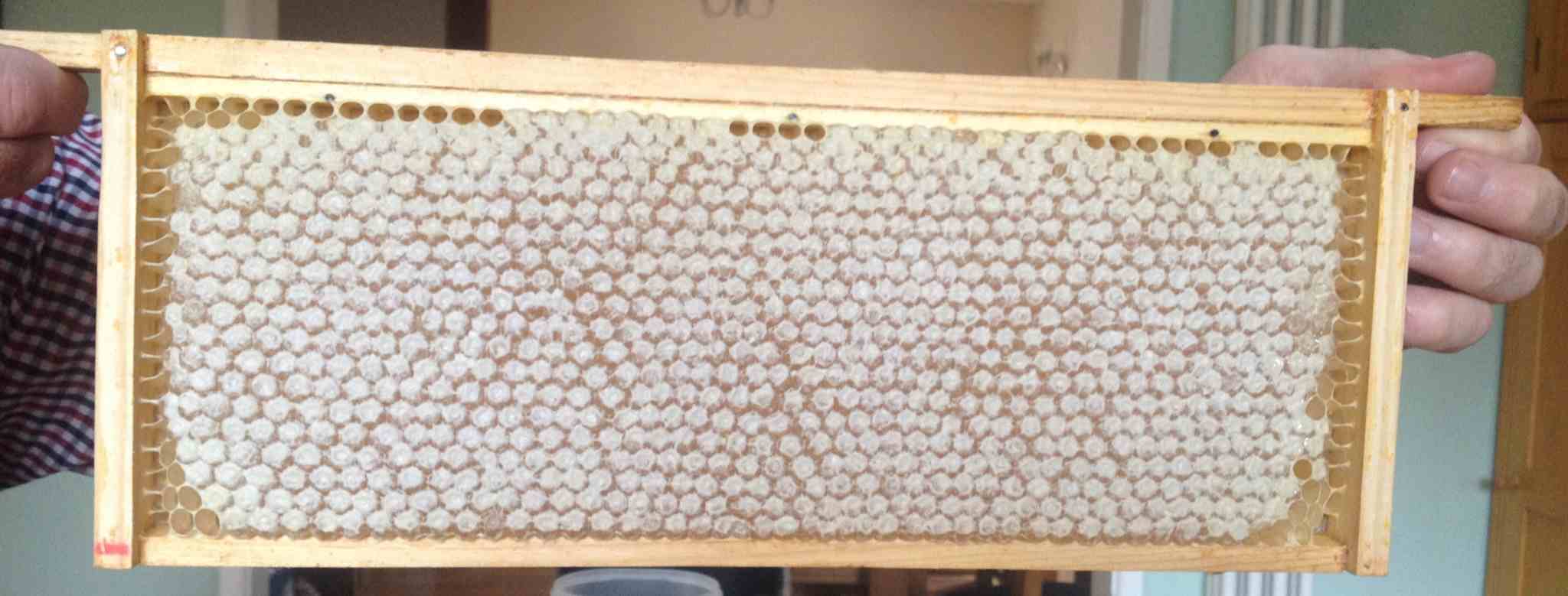Our Devon honey comes straight from the comb to the jar. It is not treated, pasteurised or processed in any way. It is not altered or blended with other substances. It is pure and natural. Our Apiary is surrounded by a rich and diverse range of flora. It is this which gives our honey its golden colour and floral taste. The taste which brings so many back for more! We are very proud of our customer feedback.
 Pure Devon Honey from Dartmoor – from flower to hive to jar.
Pure Devon Honey from Dartmoor – from flower to hive to jar.
 A frame of our honey sealed with beeswax – we make candles and polish from the wax cappings
A frame of our honey sealed with beeswax – we make candles and polish from the wax cappings
Our Honeybees collect nectar from plant blossoms. They use an enzyme called invertase to convert the nectar into simple sugars. The bees create air flow and heat in the hive by vibrating their wings and flight muscles. Gradually they evaporate the water out of the nectar. What is left is a delicious, sticky liquid called Honey. The bees store the honey in honeycomb and seal it with pure beeswax.
Honey contains fructose, glucose, water, maltose, small amounts of carbohydrates, sucrose, and traces of minerals: Calcium, Copper, Iron, Magnesium, Manganese, Phosphorous, Potassium, Sodium, Zinc, vitamins: Thiamin, Riboflavin, Niacin, Pantothenic acid, Vitamin B-6, Vitamin B-12, Folate, Vitamin C, Vitamin A, Vitamin D, Vitamin E, Vitamin K, and antioxidants: Catalase, ascorbic acid and flavonoids.
Honey, like cow’s milk, should not be fed to babies under one year of age. Local honey is a safe, natural and wholesome food for older children.
Many commercial honeys available on the high street are blended – various honeys from different countries. They have been pasteurised by heating to a high temperature. The honey is forced through very fine filters, followed by rapid cooling. This is done to prevent the honey from granulating and to provide a consistent look. Most, if not all of the honeys’ nutritional value and the goodness nature provided is lost.
In 2012, the top three honey-producing nations were China, Turkey and Ukraine. Honey brought in from other countries, including parts of Europe and the USA could well be contaminated with antibiotics.